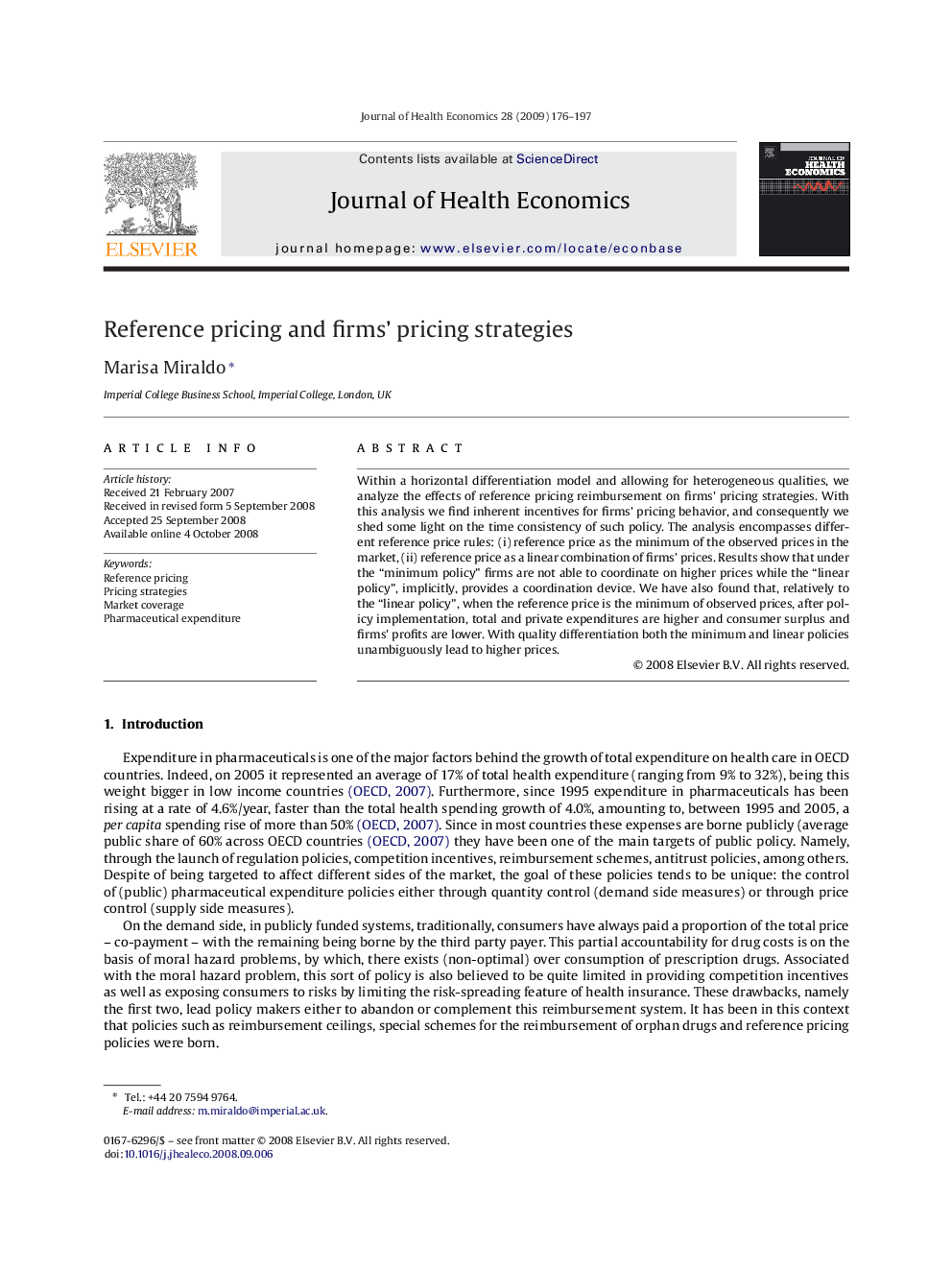| Article ID | Journal | Published Year | Pages | File Type |
|---|---|---|---|---|
| 962043 | Journal of Health Economics | 2009 | 22 Pages |
Abstract
Within a horizontal differentiation model and allowing for heterogeneous qualities, we analyze the effects of reference pricing reimbursement on firms' pricing strategies. With this analysis we find inherent incentives for firms' pricing behavior, and consequently we shed some light on the time consistency of such policy. The analysis encompasses different reference price rules: (i) reference price as the minimum of the observed prices in the market, (ii) reference price as a linear combination of firms' prices. Results show that under the “minimum policy” firms are not able to coordinate on higher prices while the “linear policy”, implicitly, provides a coordination device. We have also found that, relatively to the “linear policy”, when the reference price is the minimum of observed prices, after policy implementation, total and private expenditures are higher and consumer surplus and firms' profits are lower. With quality differentiation both the minimum and linear policies unambiguously lead to higher prices.
Related Topics
Health Sciences
Medicine and Dentistry
Public Health and Health Policy
Authors
Marisa Miraldo,
